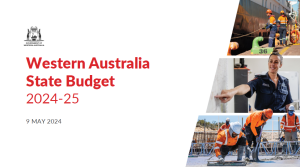The Western Australian Council of Social Service Inc. (WACOSS) welcomes the opportunity to make a submission to Energy Policy WA on the consultation draft of the Voluntary Embedded Networks Code of Practice (Code of Practice).
WACOSS is the peak body for the community services sector in Western Australia and works to create an inclusive, just and equitable society. We advocate for social and economic change to improve the wellbeing of Western Australians, and to strengthen the community services sector that supports them. WACOSS is part of a network consisting of National, State and Territory Councils of Social Service, who advance the interests of people on low incomes and those made vulnerable by the systems that have been put in place.
It is critical that all residential customers are able to rely on a system of customer protections that ensures they have affordable and reliable access to an essential service like electricity, regardless of the nature of the electricity services they receive. WACOSS welcomes the inclusion of provisions in the Code of Practice to assist customers that are experiencing financial hardship so that they can maintain their connection to electricity services, as well as the inclusion of appropriate protections for those consumers who are victim survivors of family and domestic violence.
WACOSS recognises that the Code of Practice is not intended to duplicate wholesale the Code of Conduct for the Supply of Electricity to Small Use Customers (Electricity Code). We consider, however, that the Electricity Code contains a number of conditions that should be replicated in the Code of Practice to ensure an appropriate level of customer protections for residential consumers who are reliant on the services of an ENS.
Accessibility
To ensure that all customers are able to understand their financial obligations, what support is available to them and their rights as a customer, the Electricity Code requires certain accessibility measures that should be replicated in the Code of Practice. Not only does this provide fundamental level customer protections, but it is also of particular importance due to the potential for added confusion for customers that have not previously had their electricity provided by an ENS.
All relevant documentation, including the Disclosure Statement, bills, financial hardship policies and family violence policies, should include the telephone number for interpreter services, identified by the National Interpreter Symbol; and the telephone number or numbers for services that can assist customers with a speech or hearing impairment. An ENS should make available to a residential customer on request, at no charge, services that assist the customer in understanding information provided by the ENS, including independent interpreter services and services for customers with a speech or hearing impairment, and large print copies.
Payment methods
WACOSS considers that, as under clause 34(1) of the Electricity Code, the Code of Practice should require that an ENS provide their customers the right to pay their bill through Centrepay as a minimum payment method. Centrepay is a free billing service for people who receive income support through Centrelink that enables customers to set up automatic deductions from their income support payments to cover their bills.[1]
“[Centrepay] is often a good process, because that allows payments to be made before any money is received; and it certainly helps in instances of domestic violence or coercive control.”
– Interview with a Financial Counsellor, Understanding Utility Hardship Report[2]
Information on the bill
WACOSS recognises that the draft Code of Practice requires that information on accessing concessions be provided in the hardship policy of an ENS and in the Disclosure Statement. We suggest, however, that this information should also be provided on the bill. It is critical that there are as few barriers as possible to accessing the support customers need and the assistance to which they are entitled.
For eligible ENS customers, concessions are a payment to which they are entitled, regardless of whether they are having difficulties paying their electricity bill or not. As such, for customers who become eligible long after they receive the disclosure statement, it is not necessarily appropriate that they should have to search through a financial hardship policy to discover this information. Further, not all customers who are having difficulties paying their bills will self-identify that they are in ‘financial hardship’ and so may not access that policy. Providing information about accessing concessions in the bill serves as a reminder for customers that these payments are available and normalises access to them.
Payment plans and extensions
Energy is an essential service that should, at all times, be accessible, affordable and equitable. WACOSS considers that the Code of Practice should mirror clause 41 of the Electricity Code by requiring that an ENS must make available to all residential customers additional time to pay a bill and a payment plan for the amount owing.
By establishing an unambiguous entitlement to assistance for all residential customers, it is possible to better assist customers to not enter arrears by enabling them to take early action to manage their payments, while ensuring that no customer is denied assistance. By ensuring that this is an explicit entitlement for all customers, it is possible to shift stigma associated with reaching out to access particular forms of support and encourage more proactive engagement between customers and retailers. The advantage for the ENS is that they do not have to spend time and resources assessing whether a customer is experiencing payment difficulties or not in order to be eligible for payment plans or extensions.
An ENS may not have experience providing payments plans to their customers, whether those customers are in financial hardship or not. For this reason, WACOSS also considers that the protections contained in clauses 43 and 44 of the Electricity Code should be replicated in the Code of Practice. This will provide greater guidance for ENS, while also providing important protections for those customers who enter into payment plans.
It is critical that in setting payment plans, that an ENS takes into account information about the customer’s capacity to pay and any arrears payable by the customer. Customers need to be involved in setting and varying their payment plans. As such, an ENS should not be able to vary a payment plan without obtaining the customer’s consent and they should be obligated to review a payment plan at the request of a residential customer.
The findings of the WACOSS and Bankwest Curtin Economics Centre Understanding Utility Hardship Report made clear that achieving the greatest success when providing different arrangements and assistance such as payment plans necessitates taking a customer empowerment approach.[3] Enabling consumers to exercise greater choice when determining what payment arrangements best suit their circumstances can improve engagement between customers and their electricity provider. This requires that an ENS be willing to tailor their responses to meet the different circumstances and repayment capacity of individual consumers, as well as trusting what their customers tell them.
Minimum obligations for hardship policy
WACOSS considers that in addition to the information set out in the draft Code of Practice the hardship policy of an ENS should include payment methods available to the customer and different types of tariffs that may be available to the customer. Further, we consider that rather than requiring that the ENS must ‘discuss in good faith with a Residential Customer experiencing Financial Hardship a reduction or waiver of fees, charges or debt’, the Code of Practice should more explicitly require that an ENS must ‘give reasonable consideration to a request by a customer experiencing financial hardship, or a relevant consumer representative for the customer, for a reduction of the customer’s fees, charges or debt’, as per the Electricity Code.
Paper bills
WACOSS considers that the Code of Practice should ensure that customers are able to choose between receiving a paper bill or electronic bill, and that those who choose to receive a paper bill should not be charged a fee for doing so. Western Australians have diverse levels of technological access, digital literacy and experience using digital technologies and the internet.
Some older Western Australians or people with certain disabilities, for example, may need considerable support to engage with digital technologies and digitally-enabled services. People on low incomes too are significantly impacted by the affordability of access to digital technologies and internet services. Although improving in some areas, there also remain ongoing barriers to accessing digital technologies and affordable, reliable internet access or mobile network coverage in regional and remote communities across Australia.
Charging interest on an undercharged amount
WACOSS considers that the Code of Practice should explicitly state that, as per clause 29 of the Electricity Code, an ENS is not to charge interest or late payment fees on undercharged amounts when the ENS is responsible for the undercharge. To do so would be to inappropriately penalise customers for errors, defects or defaults for which the ENS is responsible.
Training
WACOSS notes that the Electricity Code contains requirements for the training of staff about issues related to financial hardship and its impacts, how to deal sensitively and respectfully with customers experiencing financial hardship; and about issues related to family violence and its impacts, including how to identify customers who may be affected by family violence and how to apply their policies effectively and appropriately to provide assistance.
The importance of this training cannot be overstated. The way in which ENS respond to financial hardship and establish an empathic culture to support and serve community members in genuine need can contribute to improved outcomes for both the ENS and the customer. Establishing an empathetic culture through appropriately training staff can influence whether customers feel positively engaged and supported or dismissed and disengaged.
The training may help staff recognise that financial hardship can be a result of a range of circumstances, and provide them with the skills and tools to assist consumers experiencing financial hardship in the most appropriate, empathetic way. This may include training in identifying unconscious bias, effective retailer-customer communications, or tools to manage their own wellbeing and stress levels when dealing with challenging and potentially confronting situations.
Training should also equip staff with the skills to connect people with appropriate community and support agencies where the person has disclosed trauma, mental health issues or distressing circumstances. The Code of Conduct should contain requirements for the training of staff in regards to financial hardship and family violence to better support both customers and workers.
–
For further enquiries on this submission please contact Graham Hansen, Senior Policy Officer, [email protected].
[1] Services Australia, What Centrepay Is, www.servicesaustralia.gov.au/what-centrepay (Web Page).
[2] Graham Hansen, Eva Perroni and Dr Silvia Salazar, Understanding Utility Hardship, Western Australian Council of Social Service and Bankwest Curtin Economics Centre (Report, 2022).
[3] Ibid.




